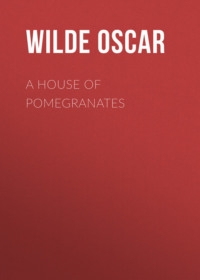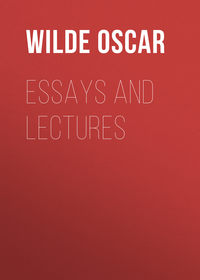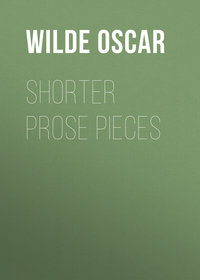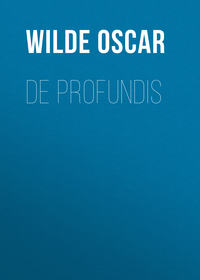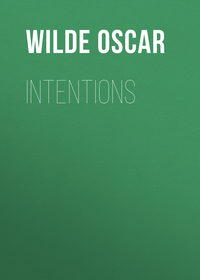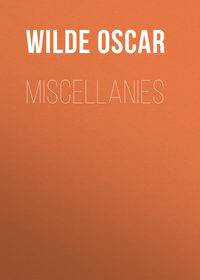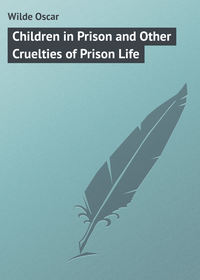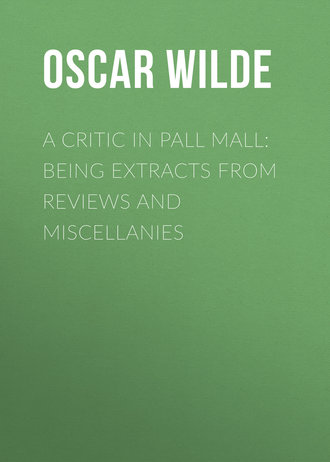 полная версия
полная версияA Critic in Pall Mall: Being Extracts from Reviews and Miscellanies
It may be objected by some that the line
With the hair on his head crisp curling as the bloom of the daffodil, is a rather fanciful version ofουλας ηκε κομας, ύακινθίνω ανθει ομοιασand it certainly seems probable that the allusion is to the dark colour of the hero’s hair; still, the point is not one of much importance, though it may be worth noting that a similar expression occurs in Ogilby’s superbly illustrated translation of the Odyssey, published in 1665, where Charles ii.’s Master of the Revels in Ireland gives the passage thus:
Minerva renders him more tall and fair,Curling in rings like daffodils his hair.No anthology, however, can show the true merit of Mr. Morris’s translation, whose real merit does not depend on stray beauties, nor is revealed by chance selections, but lies in the absolute rightness and coherence of the whole, in its purity and justice of touch, its freedom from affectation and commonplace, its harmony of form and matter. It is sufficient to say that this is a poet’s version of a poet, and for such surely we should be thankful. In these latter days of coarse and vulgar literature, it is something to have made the great sea-epic of the South native and natural to our northern isle, something to have shown that our English speech may be a pipe through which Greek lips can blow, something to have taught Nausicaa to speak the same language as Perdita.
The Odyssey of Homer. Done into English Verse by William Morris, author of The Earthly Paradise. In two volumes. Volume I. (Reeves and Turner.)
For review of Volume II. see Mr. Morris’s Completion of the Odyssey, page 65.
RUSSIAN NOVELISTS
(Pall Mall Gazette, May 2, 1887.)Of the three great Russian novelists of our time Tourgenieff is by far the finest artist. He has that spirit of exquisite selection, that delicate choice of detail, which is the essence of style; his work is entirely free from any personal intention; and by taking existence at its most fiery-coloured moments he can distil into a few pages of perfect prose the moods and passions of many lives.
Count Tolstoi’s method is much larger, and his field of vision more extended. He reminds us sometimes of Paul Veronese, and, like that great painter, can crowd, without over-crowding, the giant canvas on which he works. We may not at first gain from his works that artistic unity of impression which is Tourgenieff’s chief charm, but once that we have mastered the details the whole seems to have the grandeur and the simplicity of an epic. Dostoieffski differs widely from both his rivals. He is not so fine an artist as Tourgenieff, for he deals more with the facts than with the effects of life; nor has he Tolstoi’s largeness of vision and epic dignity; but he has qualities that are distinctively and absolutely his own, such as a fierce intensity of passion and concentration of impulse, a power of dealing with the deepest mysteries of psychology and the most hidden springs of life, and a realism that is pitiless in its fidelity, and terrible because it is true. Some time ago we had occasion to draw attention to his marvellous novel Crime and Punishment, where in the haunt of impurity and vice a harlot and an assassin meet together to read the story of Dives and Lazarus, and the outcast girl leads the sinner to make atonement for his sin; nor is the book entitled Injury and Insult at all inferior to that great masterpiece. Mean and ordinary though the surroundings of the story may seem, the heroine Natasha is like one of the noble victims of Greek tragedy; she is Antigone with the passion of Phædra, and it is impossible to approach her without a feeling of awe. Greek also is the gloom of Nemesis that hangs over each character, only it is a Nemesis that does not stand outside of life, but is part of our own nature and of the same material as life itself. Aleósha, the beautiful young lad whom Natasha follows to her doom, is a second Tito Melema, and has all Tito’s charm and grace and fascination. Yet he is different. He would never have denied Baldassare in the Square at Florence, nor lied to Romola about Tessa. He has a magnificent, momentary sincerity, a boyish unconsciousness of all that life signifies, an ardent enthusiasm for all that life cannot give. There is nothing calculating about him. He never thinks evil, he only does it. From a psychological point of view he is one of the most interesting characters of modern fiction, as from an artistic he is one of the most attractive. As we grow to know him he stirs strange questions for us, and makes us feel that it is not the wicked only who do wrong, nor the bad alone who work evil.
And by what a subtle objective method does Dostoieffski show us his characters! He never tickets them with a list nor labels them with a description. We grow to know them very gradually, as we know people whom we meet in society, at first by little tricks of manner, personal appearance, fancies in dress, and the like; and afterwards by their deeds and words; and even then they constantly elude us, for though Dostoieffski may lay bare for us the secrets of their nature, yet he never explains his personages away; they are always surprising us by something that they say or do, and keep to the end the eternal mystery of life.
Irrespective of its value as a work of art, this novel possesses a deep autobiographical interest also, as the character of Vania, the poor student who loves Natasha through all her sin and shame, is Dostoieffski’s study of himself. Goethe once had to delay the completion of one of his novels till experience had furnished him with new situations, but almost before he had arrived at manhood Dostoieffski knew life in its most real forms; poverty and suffering, pain and misery, prison, exile, and love, were soon familiar to him, and by the lips of Vania he has told his own story. This note of personal feeling, this harsh reality of actual experience, undoubtedly gives the book something of its strange fervour and terrible passion, yet it has not made it egotistic; we see things from every point of view, and we feel, not that fiction has been trammelled by fact, but that fact itself has become ideal and imaginative. Pitiless, too, though Dostoieffski is in his method as an artist, as a man he is full of human pity for all, for those who do evil as well as for those who suffer it, for the selfish no less than for those whose lives are wrecked for others and whose sacrifice is in vain. Since Adam Bede and Le Père Goriot no more powerful novel has been written than Insult and Injury.
Injury and Insult. By Fedor Dostoieffski. Translated from the Russian by Frederick Whishaw. (Vizetelly and Co.)
MR. PATER’S IMAGINARY PORTRAITS
(Pall Mall Gazette, June 11, 1887.)To convey ideas through the medium of images has always been the aim of those who are artists as well as thinkers in literature, and it is to a desire to give a sensuous environment to intellectual concepts that we owe Mr. Pater’s last volume. For these Imaginary or, as we should prefer to call them, Imaginative Portraits of his, form a series of philosophic studies in which the philosophy is tempered by personality, and the thought shown under varying conditions of mood and manner, the very permanence of each principle gaining something through the change and colour of the life through which it finds expression. The most fascinating of all these pictures is undoubtedly that of Sebastian Van Storck. The account of Watteau is perhaps a little too fanciful, and the description of him as one who was ‘always a seeker after something in the world, that is there in no satisfying measure, or not at all,’ seems to us more applicable to him who saw Mona Lisa sitting among the rocks than the gay and debonair peintre des fêtes galantes. But Sebastian, the grave young Dutch philosopher, is charmingly drawn. From the first glimpse we get of him, skating over the water-meadows with his plume of squirrel’s tail and his fur muff, in all the modest pleasantness of boyhood, down to his strange death in the desolate house amid the sands of the Helder, we seem to see him, to know him, almost to hear the low music of his voice. He is a dreamer, as the common phrase goes, and yet he is poetical in this sense, that his theorems shape life for him, directly. Early in youth he is stirred by a fine saying of Spinoza, and sets himself to realize the ideal of an intellectual disinterestedness, separating himself more and more from the transient world of sensation, accident and even affection, till what is finite and relative becomes of no interest to him, and he feels that as nature is but a thought of his, so he himself is but a passing thought of God. This conception, of the power of a mere metaphysical abstraction over the mind of one so fortunately endowed for the reception of the sensible world, is exceedingly delightful, and Mr. Pater has never written a more subtle psychological study, the fact that Sebastian dies in an attempt to save the life of a little child giving to the whole story a touch of poignant pathos and sad irony.
Denys l’Auxerrois is suggested by a figure found, or said to be found, on some old tapestries in Auxerre, the figure of a ‘flaxen and flowery creature, sometimes well-nigh naked among the vine-leaves, sometimes muffled in skins against the cold, sometimes in the dress of a monk, but always with a strong impress of real character and incident from the veritable streets’ of the town itself. From this strange design Mr. Pater has fashioned a curious mediæval myth of the return of Dionysus among men, a myth steeped in colour and passion and old romance, full of wonder and full of worship, Denys himself being half animal and half god, making the world mad with a new ecstasy of living, stirring the artists simply by his visible presence, drawing the marvel of music from reed and pipe, and slain at last in a stage-play by those who had loved him. In its rich affluence of imagery this story is like a picture by Mantegna, and indeed Mantegna might have suggested the description of the pageant in which Denys rides upon a gaily-painted chariot, in soft silken raiment and, for head-dress, a strange elephant scalp with gilded tusks.
If Denys l’Auxerrois symbolizes the passion of the senses and Sebastian Van Storck the philosophic passion, as they certainly seem to do, though no mere formula or definition can adequately express the freedom and variety of the life that they portray, the passion for the imaginative world of art is the basis of the story of Duke Carl of Rosenmold. Duke Carl is not unlike the late King of Bavaria, in his love of France, his admiration for the Grand Monarque and his fantastic desire to amaze and to bewilder, but the resemblance is possibly only a chance one. In fact Mr. Pater’s young hero is the precursor of the Aufklärung of the last century, the German precursor of Herder and Lessing and Goethe himself, and finds the forms of art ready to his hand without any national spirit to fill them or make them vital and responsive. He too dies, trampled to death by the soldiers of the country he so much admired, on the night of his marriage with a peasant girl, the very failure of his life lending him a certain melancholy grace and dramatic interest.
On the whole, then, this is a singularly attractive book. Mr. Pater is an intellectual impressionist. He does not weary us with any definite doctrine or seek to suit life to any formal creed. He is always looking for exquisite moments and, when he has found them, he analyses them with delicate and delightful art and then passes on, often to the opposite pole of thought or feeling, knowing that every mood has its own quality and charm and is justified by its mere existence. He has taken the sensationalism of Greek philosophy and made it a new method of art criticism. As for his style, it is curiously ascetic. Now and then, we come across phrases with a strange sensuousness of expression, as when he tells us how Denys l’Auxerrois, on his return from a long journey, ‘ate flesh for the first time, tearing the hot, red morsels with his delicate fingers in a kind of wild greed,’ but such passages are rare. Asceticism is the keynote of Mr. Pater’s prose; at times it is almost too severe in its self-control and makes us long for a little more freedom. For indeed, the danger of such prose as his is that it is apt to become somewhat laborious. Here and there, one is tempted to say of Mr. Pater that he is ‘a seeker after something in language, that is there in no satisfying measure, or not at all.’ The continual preoccupation with phrase and epithet has its drawbacks as well as its virtues. And yet, when all is said, what wonderful prose it is, with its subtle preferences, its fastidious purity, its rejection of what is common or ordinary! Mr. Pater has the true spirit of selection, the true art of omission. If he be not among the greatest prose writers of our literature he is, at least, our greatest artist in prose; and though it may be admitted that the best style is that which seems an unconscious result rather than a conscious aim, still in these latter days when violent rhetoric does duty for eloquence and vulgarity usurps the name of nature, we should be grateful for a style that deliberately aims at perfection of form, that seeks to produce its effect by artistic means and sets before itself an ideal of grave and chastened beauty.
Imaginary Portraits. By Walter Pater, M.A., Fellow of Brasenose College, Oxford. (Macmillan and Co.)
A GERMAN PRINCESS
(Woman’s World, November 1887.)The Princess Christian’s translation of the Memoirs of Wilhelmine, Margravine of Baireuth, is a most fascinating and delightful book. The Margravine and her brother, Frederick the Great, were, as the Princess herself points out in an admirably written introduction, ‘among the first of those questioning minds that strove after spiritual freedom’ in the last century. ‘They had studied,’ says the Princess, ‘the English philosophers, Newton, Locke, and Shaftesbury, and were roused to enthusiasm by the writings of Voltaire and Rousseau. Their whole lives bore the impress of the influence of French thought on the burning questions of the day. In the eighteenth century began that great struggle of philosophy against tyranny and worn-out abuses which culminated in the French Revolution. The noblest minds were engaged in the struggle, and, like most reformers, they pushed their conclusions to extremes, and too often lost sight of the need of a due proportion in things. The Margravine’s influence on the intellectual development of her country is untold. She formed at Baireuth a centre of culture and learning which had before been undreamt of in Germany.’
The historical value of these Memoirs is, of course, well known. Carlyle speaks of them as being ‘by far the best authority’ on the early life of Frederick the Great. But considered merely as the autobiography of a clever and charming woman, they are no less interesting, and even those who care nothing for eighteenth-century politics, and look upon history itself as an unattractive form of fiction, cannot fail to be fascinated by the Margravine’s wit, vivacity and humour, by her keen powers of observation, and by her brilliant and assertive egotism. Not that her life was by any means a happy one. Her father, to quote the Princess Christian, ‘ruled his family with the same harsh despotism with which he ruled his country, taking pleasure in making his power felt by all in the most galling manner,’ and the Margravine and her brother ‘had much to suffer, not only from his ungovernable temper, but also from the real privations to which they were subjected.’ Indeed, the picture the Margravine gives of the King is quite extraordinary. ‘He despised all learning,’ she writes, ‘and wished me to occupy myself with nothing but needlework and household duties or details. Had he found me writing or reading, he would probably have whipped me.’ He ‘considered music a capital offence, and maintained that every one should devote himself to one object: men to the military service, and women to their household duties. Science and the arts he counted among the “seven deadly sins.”’ Sometimes he took to religion, ‘and then,’ says the Margravine, ‘we lived like trappists, to the great grief of my brother and myself. Every afternoon the King preached a sermon, to which we had to listen as attentively as if it proceeded from an Apostle. My brother and I were often seized with such an intense sense of the ridiculous that we burst out laughing, upon which an apostolic curse was poured out on our heads, which we had to accept with a show of humility and penitence.’ Economy and soldiers were his only topics of conversation; his chief social amusement was to make his guests intoxicated; and as for his temper, the accounts the Margravine gives of it would be almost incredible if they were not amply corroborated from other sources. Suetonius has written of the strange madness that comes on kings, but even in his melodramatic chronicles there is hardly anything that rivals what the Margravine has to tell us. Here is one of her pictures of family life at a Royal Court in the last century, and it is not by any means the worst scene she describes:
On one occasion, when his temper was more than usually bad, he told the Queen that he had received letters from Anspach, in which the Margrave announced his arrival at Berlin for the beginning of May. He was coming there for the purpose of marrying my sister, and one of his ministers would arrive previously with the betrothal ring. My father asked my sister whether she were pleased at this prospect, and how she would arrange her household. Now my sister had always made a point of telling him whatever came into her head, even the greatest home-truths, and he had never taken her outspokenness amiss. On this occasion, therefore, relying on former experience, she answered him as follows: ‘When I have a house of my own, I shall take care to have a well-appointed dinner-table, better than yours is, and if I have children of my own, I shall not plague them as you do yours, and force them to eat things they thoroughly dislike!’
‘What is amiss with my dinner-table?’ the King enquired, getting very red in the face.
‘You ask what is the matter with it,’ my sister replied; ‘there is not enough on it for us to eat, and what there is is cabbage and carrots, which we detest.’ Her first answer had already angered my father, but now he gave vent to his fury. But instead of punishing my sister he poured it all on my mother, my brother, and myself. To begin with he threw his plate at my brother’s head, who would have been struck had he not got out of the way; a second one he threw at me, which I also happily escaped; then torrents of abuse followed these first signs of hostility. He reproached the Queen with having brought up her children so badly. ‘You will curse your mother,’ he said to my brother, ‘for having made you such a good-for-nothing creature.’.. As my brother and I passed near him to leave the room, he hit out at us with his crutch. Happily we escaped the blow, for it would certainly have struck us down, and we at last escaped without harm.
Yet, as the Princess Christian remarks, ‘despite the almost cruel treatment Wilhelmine received from her father, it is noticeable that throughout her memoirs she speaks of him with the greatest affection. She makes constant reference to his “good heart”’; and says that his faults ‘were more those of temper than of nature.’ Nor could all the misery and wretchedness of her home life dull the brightness of her intellect. What would have made others morbid, made her satirical. Instead of weeping over her own personal tragedies, she laughs at the general comedy of life. Here, for instance, is her description of Peter the Great and his wife, who arrived at Berlin in 1718:
The Czarina was small, broad, and brown-looking, without the slightest dignity or appearance. You had only to look at her to detect her low origin. She might have passed for a German actress, she had decked herself out in such a manner. Her dress had been bought second-hand, and was trimmed with some dirty looking silver embroidery; the bodice was trimmed with precious stones, arranged in such a manner as to represent the double eagle. She wore a dozen orders; and round the bottom of her dress hung quantities of relics and pictures of saints, which rattled when she walked, and reminded one of a smartly harnessed mule. The orders too made a great noise, knocking against each other.
The Czar, on the other hand, was tall and well grown, with a handsome face, but his expression was coarse, and impressed one with fear. He wore a simple sailor’s dress. His wife, who spoke German very badly, called her court jester to her aid, and spoke Russian with her. This poor creature was a Princess Gallizin, who had been obliged to undertake this sorry office to save her life, as she had been mixed up in a conspiracy against the Czar, and had twice been flogged with the knout!
* * * * *The following day [the Czar] visited all the sights of Berlin, amongst others the very curious collection of coins and antiques. Amongst these last named was a statue, representing a heathen god. It was anything but attractive, but was the most valuable in the collection. The Czar admired it very much, and insisted on the Czarina kissing it. On her refusing, he said to her in bad German that she should lose her head if she did not at once obey him. Being terrified at the Czar’s anger she immediately complied with his orders without the least hesitation. The Czar asked the King to give him this and other statues, a request which he could not refuse. The same thing happened about a cupboard, inlaid with amber. It was the only one of its kind, and had cost King Frederick I. an enormous sum, and the consternation was general on its having to be sent to Petersburg.
This barbarous Court happily left after two days. The Queen rushed at once to Monbijou, which she found in a state resembling that of the fall of Jerusalem. I never saw such a sight. Everything was destroyed, so that the Queen was obliged to rebuild the whole house.
Nor are the Margravine’s descriptions of her reception as a bride in the principality of Baireuth less amusing. Hof was the first town she came to, and a deputation of nobles was waiting there to welcome her. This is her account of them:
Their faces would have frightened little children, and, to add to their beauty, they had arranged their hair to resemble the wigs that were then in fashion. Their dresses clearly denoted the antiquity of their families, as they were composed of heirlooms, and were cut accordingly, so that most of them did not fit. In spite of their costumes being the ‘Court Dresses,’ the gold and silver trimmings were so black that you had a difficulty in making out of what they were made. The manners of these nobles suited their faces and their clothes. They might have passed for peasants. I could scarcely restrain my laughter when I first beheld these strange figures. I spoke to each in turn, but none of them understood what I said, and their replies sounded to me like Hebrew, because the dialect of the Empire is quite different from that spoken in Brandenburg.


